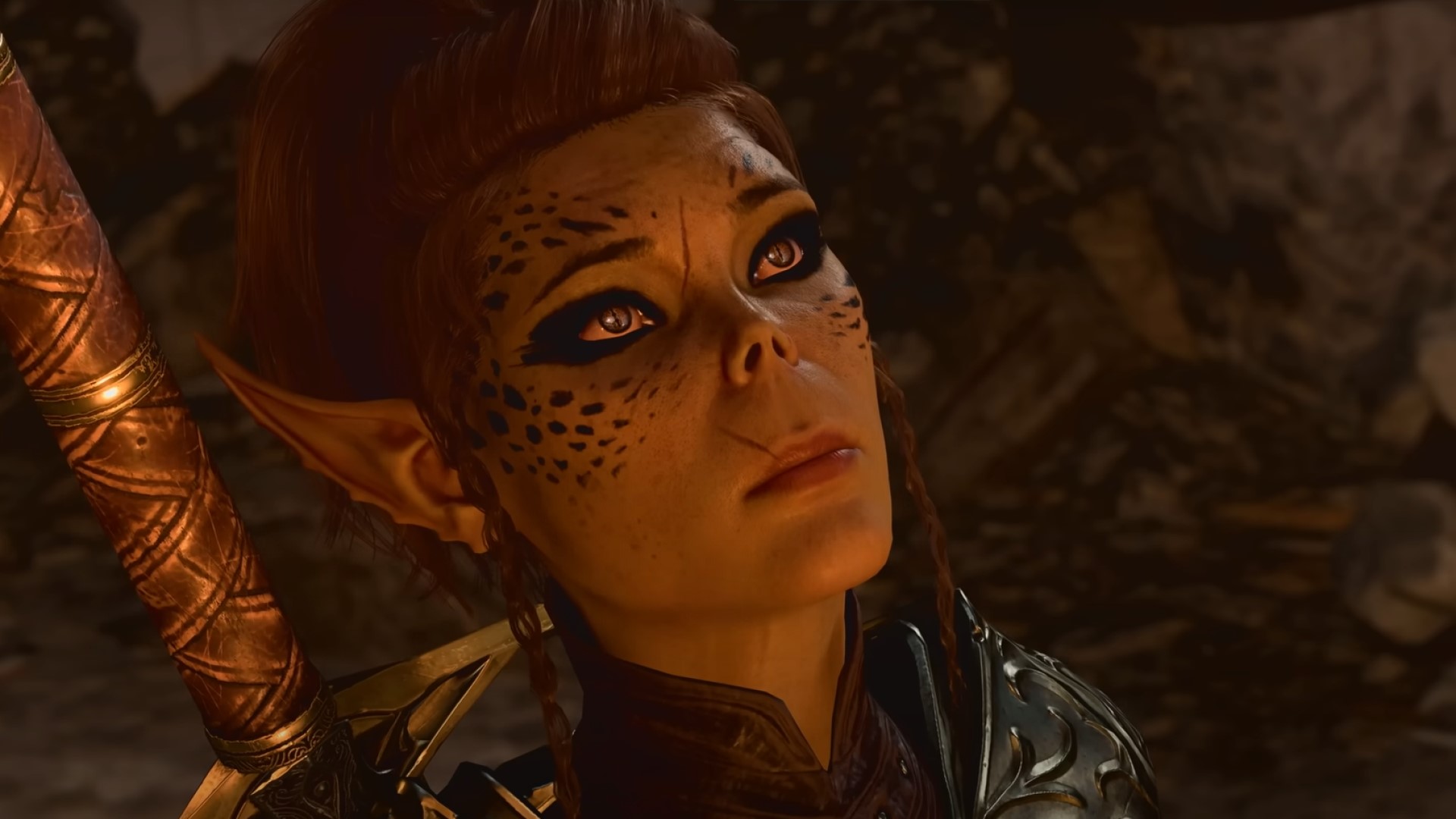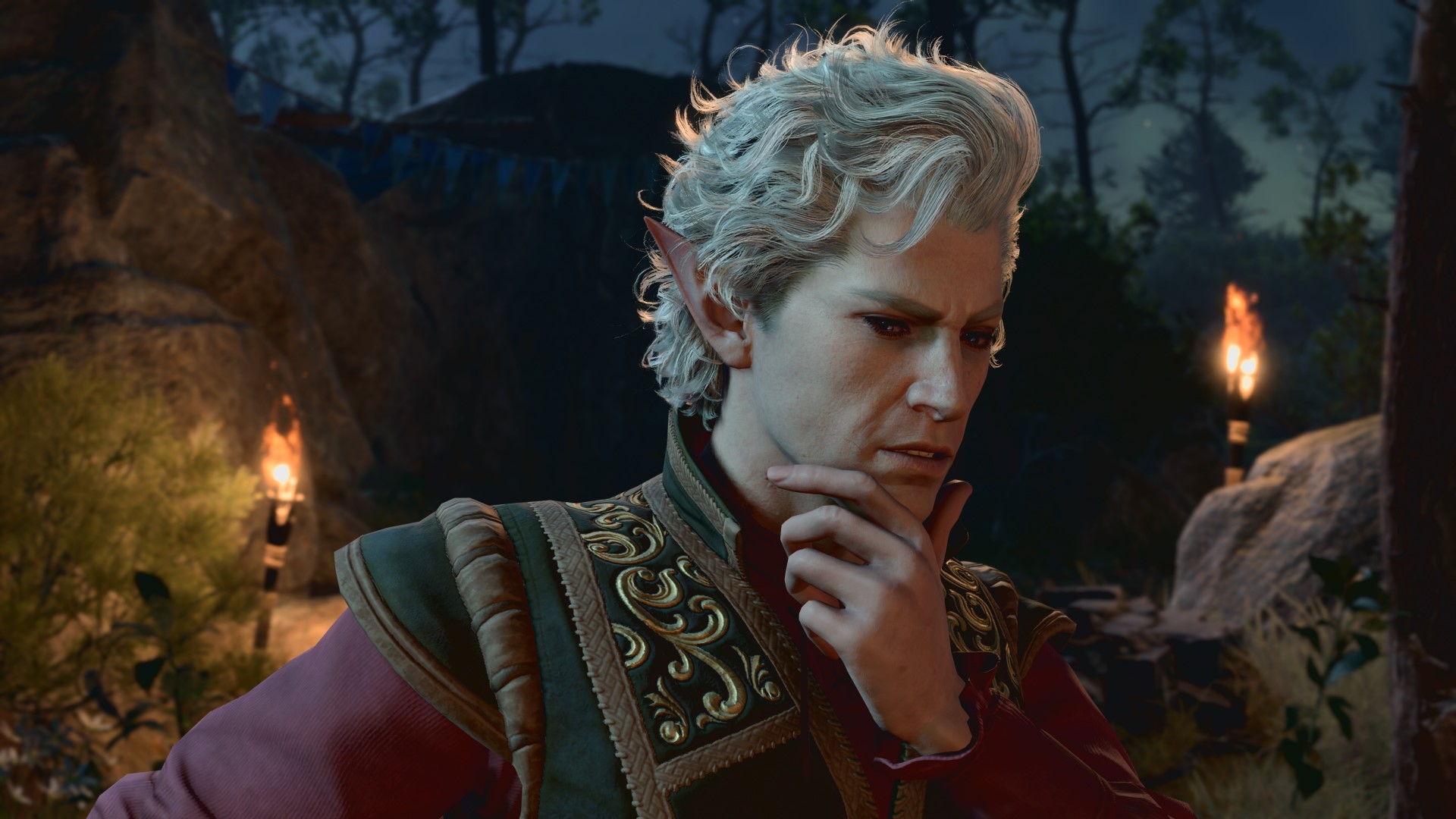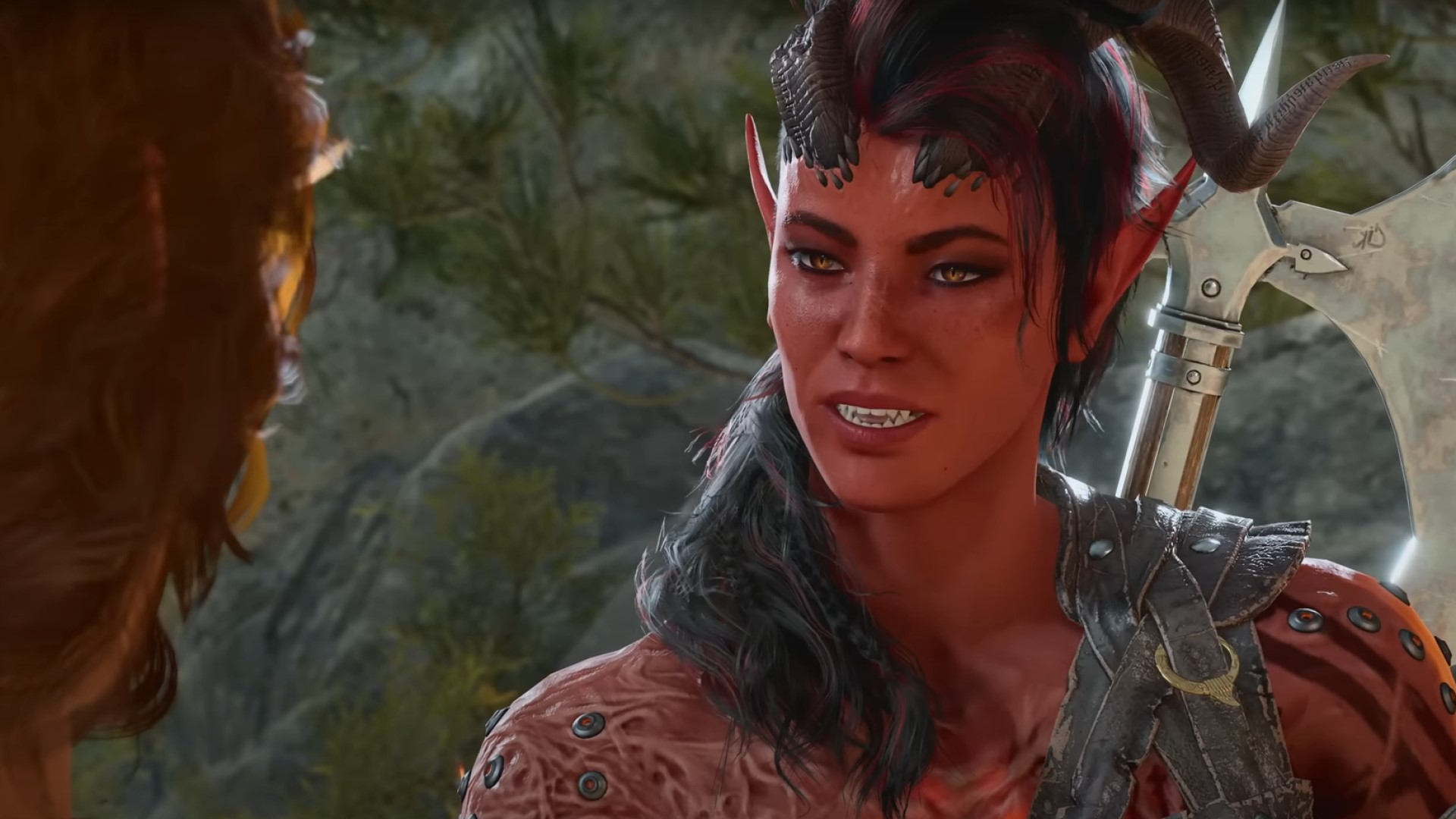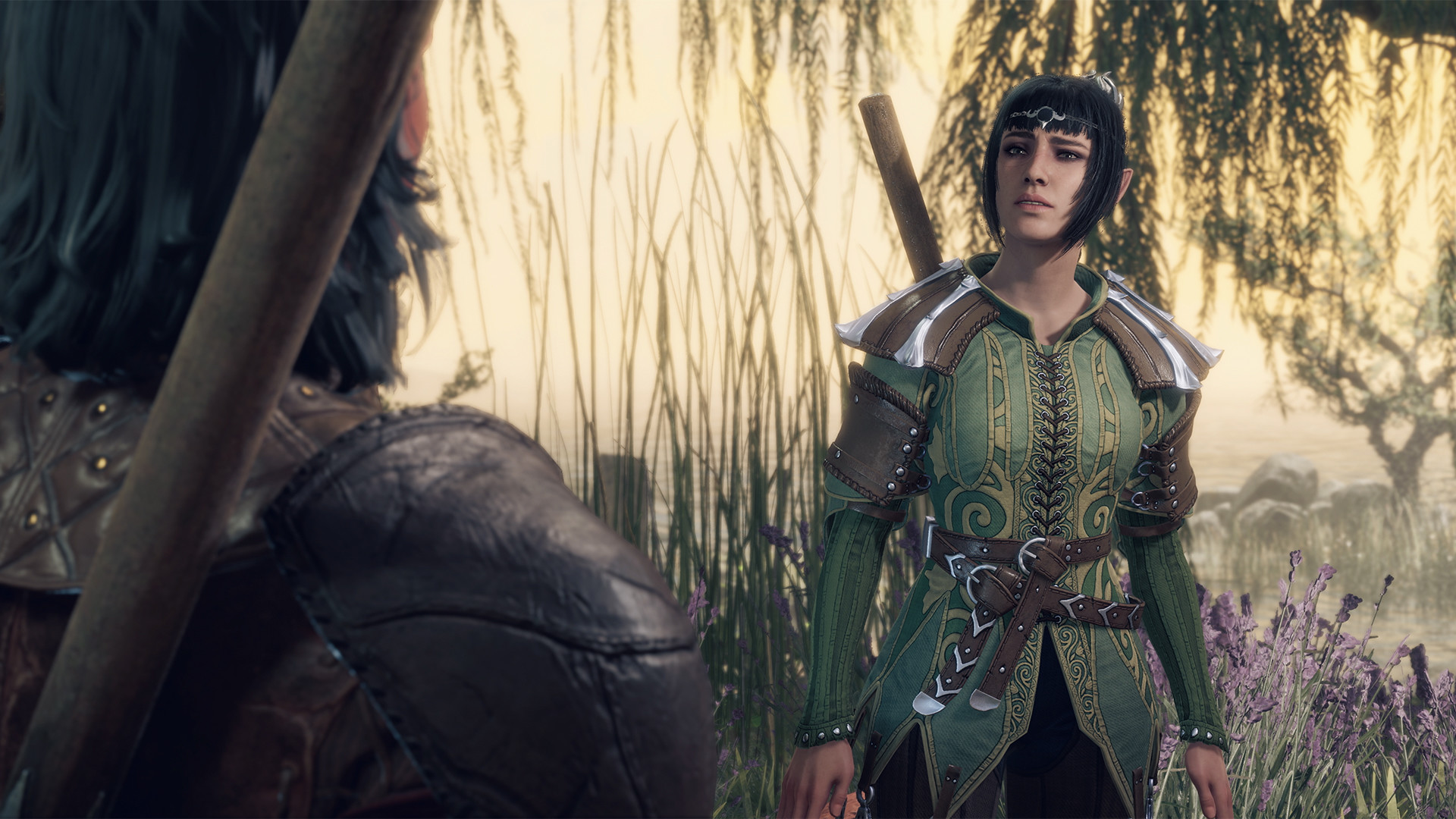Baldur's Gate 3's argumentative companions give the roleplaying game its heart
With friends like these

Sign up for breaking news, reviews, opinion, top tech deals, and more.
You are now subscribed
Your newsletter sign-up was successful
Nobody likes a sycophant. Whether you’re in the real world, or one of the best RPGs out there, people can quickly tire and frustrate. Fortunately, the companions of Baldur’s Gate 3 offer quite the opposite.
From Shadowheart the enigmatic Cleric to Asterion the rakish elf wearing a "not a vampire" t-shirt, Baldur’s Gate 3’s companions possess their own goals and agendas, each of which play out over their respective personal side-quests. This collection of storylines is pleasantly reminiscent of the famous loyalty missions from Mass Effect 2, but contrary to BioWare’s sci-fi epic, Baldur’s Gate 3’s supporting cast will not blindly follow the will of the protagonist.
Though companions can sometimes be talked around with your character’s social skills (if they have any), this will prove a challenge at the best of times. Success in Baldur’s Gate 3’s skill checks is rarely guaranteed, especially at higher difficulties. Situational modifiers based on your relationship with the character in question can play a role, too, making the whole affair feel delicate and responsive. Together, these factors ensure that any successful persuasion on the protagonist’s part feels hard-earned.
However, even should you bring a companion to your way of thinking, it never feels as though you’ve simply rewritten the characters at the touch of a button. Asterion will always be a freedom-hungry hedonist and Lae’zel will always be proud, belligerent, and battle-hungry. Though you can influence how these ambitions and qualities are directed, you can never outright change them. In Baldur’s Gate 3, you can be the master of a given companion’s fate, but they remain captain of their soul.
Ritual significance

Spoilers ahead for Baldur’s Gate 3
Asterion the vampire spawn makes his agenda quite clear throughout the story. He wants to overthrow his abusive ex-master Cazador, the vampire lord who turned him, taking his place in a mass-murderous ritual to become a vampire ascendant - a sort of super vampire immune to the effects of sunlight.
Throughout the story, Asterion will pressure you towards this end. He will even urge you to work with devils to acquire more information about Cazador’s planned ritual. No matter how much of a do-gooder your character may be, Asterion will remain resolute that he’s justified in taking advantage of the ritual and claiming the lives of all the sacrifices that Cazador has prepared.
Sign up for breaking news, reviews, opinion, top tech deals, and more.
Asterion makes a heartfelt and emotionally raw argument
This comes to a head in act three, where the party can choose to storm Cazador’s palace either preventing the ritual or allowing Asterion to take Cazador’s place. Should you wish to talk Asterion around from taking advantage of the ritual and slaughtering innocents, you’ll need to talk him around, all while the character’s voice actor, Neil Newbon, gives a spine-tingling performance, highlighting the vampire-spawn’s urge for vengeance against his abuser.
Asterion makes a heartfelt and emotionally raw argument. Addressing Cazador, he says: “One last thrust and I’ll be free of you. I’ll never have to fear you again, but if I finish the ritual you started, I’ll never have to fear anyone, ever.”
This frames the conversation that follows, where, should you attempt to appeal to Asterion’s good nature, he’ll push back, rationalizing the deaths of the ritual’s victims.
Push again, and you’ll need to make a persuasion check. While you can convince him to step aside with a high enough roll, there’s nothing you can do to prevent Asterion from taking bloody vengeance on Cazador as he brutally stabs the vampire lord to death in a visceral display of motion-captured violence. While you can redirect Asterion’s vengeful energies, you cannot erase them - a decision that makes his character feel all the more emotionally resonant.

Asterion isn’t alone in this. Lae’zel’s shaken political loyalties and role in an unfolding Gith civil war do provide opportunities for player intervention, but never at the expense of her determination and thirst to prove herself. She will argue with you constantly, ensuring that you justify your decisions.
All of Baldur’s Gate 3’s characters will make demands of you, warming to you if you meet their standards and admonishing you if you do not. As the player character, you do not feel like you’re their better, but their equal, butting heads with your comrades as a fellow member of the party.
The consequences of your actions

Though Baldur’s Gate 3 makes a towering commitment to its characters in this way, it is hardly gaming’s first attempt to offer companions with a bit more spice. The first entry in the Mass Effect series dared to have Wrex, a veteran bounty hunter from a dying alien race, face off against you in a standoff that could potentially end with his death. While talking him down is a possibility, it's by no means guaranteed. Wrex’s strident commitment to his ideals helped secure him a place of honor within the Mass Effect fandom.
However, this is the exception rather than the rule. For the most part, Mass Effect’s cast will blindly follow protagonist Commander Shepard like a sort of messianic figure. Garrus the vigilante will abandon his quest for vengeance, Mordin the scientist will delete his painstakingly crafted research, and Tali the engineer will abandon her people’s centuries-long feud with the Geth, all at a word from the player character.

Baldur’s Gate 3, by contrast, isn’t afraid to have party members flat-out leave if you cross certain lines. Side against the refugees in act one, and do-gooder Warlock Wyll and boisterous Barbarian Karlach will leave the party outright, unable to adventure with someone who could countenance the slaughter of so many innocents. Shadowheart the Cleric can also leave if you sufficiently offend her religious sensibilities.
Baldur’s Gate 3 has its characters judge you for your actions just as you judge them for theirs
Baldur’s Gate 3 has its characters judge you for your actions just as you judge them for theirs. Party members will constantly comment on your decisions, making it clear where they disagree with you. At times, these conversations can be strong enough to steer your course entirely. For instance, I found Lae’zel’s arguments against embracing more Mindflayer powers persuasive enough to put me off dabbling with them for the entirety of my first playthrough.
These discussions and arguments ebb and flow along the course of the game’s story, maturing at the climax of each companion’s personal story to create moments with a grit and believability that you might not necessarily expect from a setting with flying elephants and talking squirrels. This bickering helps ensure that Baldur’s Gate 3’s companions feel like a fractious found family, full of tension and strife, but undoubtedly, painfully realistic.
Looking to make the most out of Larian’s hit RPG? Check out our guide to the best Baldur’s Gate 3 classes, as well as how to respec in Baldur’s Gate 3.

An editor and freelance journalist, Cat Bussell has been writing about video games for more than four years and, frankly, she’s developed a taste for it. As seen on TechRadar, Technopedia, The Gamer, Wargamer, and SUPERJUMP, Cat’s reviews, features, and guides are lovingly curated for your reading pleasure.
A Cambridge graduate, recovering bartender, and Cloud Strife enjoyer, Cat’s foremost mission is to bring you the best coverage she can, whether that’s through helpful guides, even-handed reviews, or thought-provoking features. She’s interviewed indie darlings, triple-A greats, and legendary voice actors, all to help you get closer to the action. When she’s not writing, Cat can be found sticking her neck into a fresh RPG or running yet another Dungeons & Dragons game.